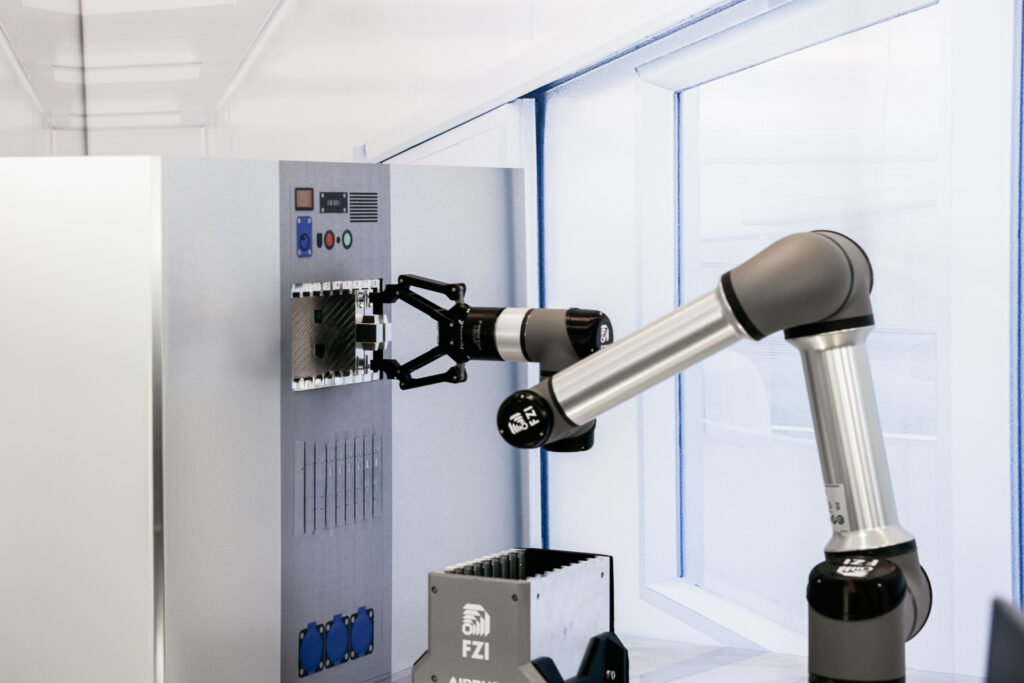DisCoBoard
An AI Dashboard Helping Youth Uncover Online Disinformation
Start: 12/2021
End: 12/2023
Over the past years, a new modular concept for future on-board computer system architectures in aviation systems evolved. Against this backdrop, the international standard CompactPCI Serial Space was published in 2017. Due to the many contacts, the plug-in of the numerous cards developed for this rack-based concept is challenging.
The FZI is working on robots that provide support with sensitive manipulation in this scenario. Robots can use human reference data to learn the interface-specific handling strategies for plugging in the cards. These force strategies are stored in a Deep Neural Network and optimized in a second simulative phase. Employing a targeted transfer learning phase, the AI system adapts the force-sensitive strategy according to the card used. The result is a new adaptive and force-based robotic solution.
In RackKI, an automated AI-supported solution was successfully developed. It implements a flexible handling approach with a terrestrial lightweight industrial robot and can plug in new cards intelligently and autonomously. A unique gripper and collision-free path planning were developed, enabling the cards to be transported from storage to the rack before the force-based plug-in.
In this research focus, the FZI concentrates on practical research into the key technology of Artificial Intelligence (AI). Innovative AI solutions are developed and transferred to application areas such as mobility, robotics, healthcare technology, logistics, production, and supply and disposal on behalf of our partners and customers.

Funding note:
The RackKI project (Funding Code 50RA2128) was funded by the Federal Ministry for Economic Affairs and Climate Action.
Projekt partner:
An AI Dashboard Helping Youth Uncover Online Disinformation
Research Projects Back to the overview AMAZING Automated Modelling, Analysis and State Estimation via Intelligent Network Algorithms and Graph Methods Start: 10.2024 End: 09.2027 The energy transition presents electricity grid…
The FZI develops ROS driver for Universal Robots
German-Israeli Research Initiative on Digital Democracy
Artificial Intelligence in Traffic Systems
Supercomputing Platform for Highly Automated Vehicles
Cybersecurity for SMEs
Data management repository for care-supporting AI applications
Innovation with Cybersecurity for SMEs in Baden-Württemberg
Hardening of embedded RISC-V software by means of code transformations